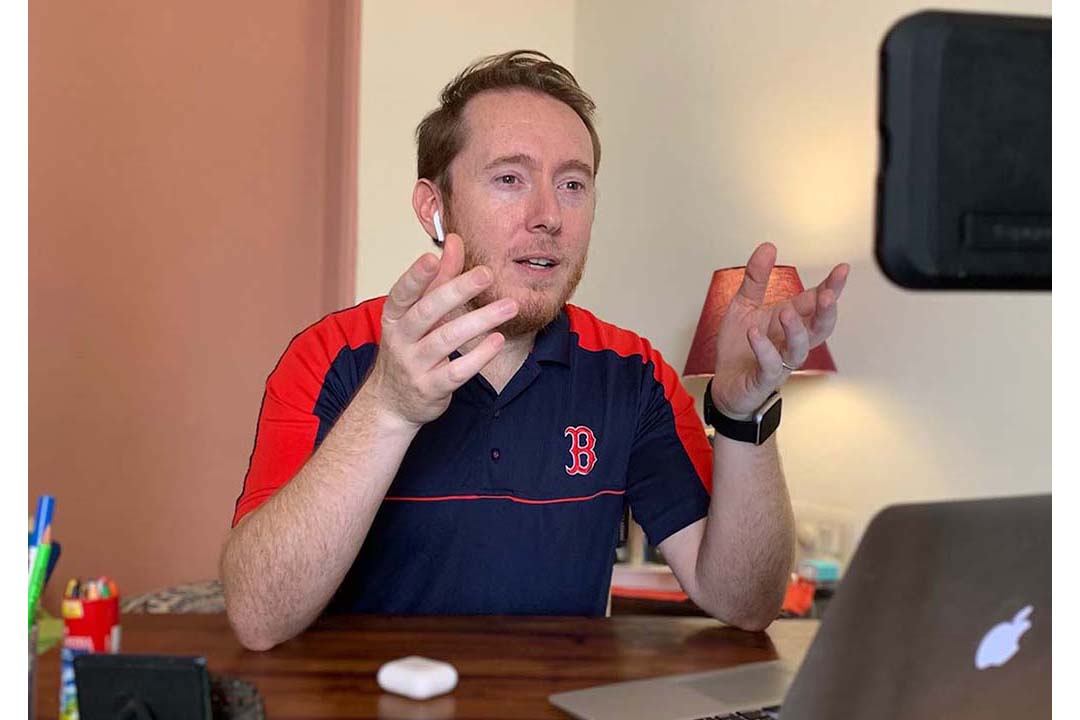
21 May Alumni Spotlight – Jamie Alter ’99
Jamie Alter, Class of 1999, a successful YouTuber, actor, social media influencer, and a sports journalist, talks about his life experiences and journey. Jamie is the son of the late actor and Padma Shri, Tom Alter ’68, and is a fourth-generation American born in India. His familial ties to Woodstock stretch back generations with nearly 30 of his relatives having attended Woodstock. Jamie attended Woodstock for 8 years after which he matriculated to the college of Wooster in Ohio. He has been a sports journalist, worked at notable organisations such as ESPNcricinfo, Cricbuzz, Cricketnext, Times of India, and co-founded MytwoCents.com. He recently started a successful career as a YouTuber and social media influencer. Jamie is also an actor and has acted in three Hindi-language films, as well as in the highly acclaimed Amazon Prime Video web series, Afsos. Read our Interview below with Jamie Alter.
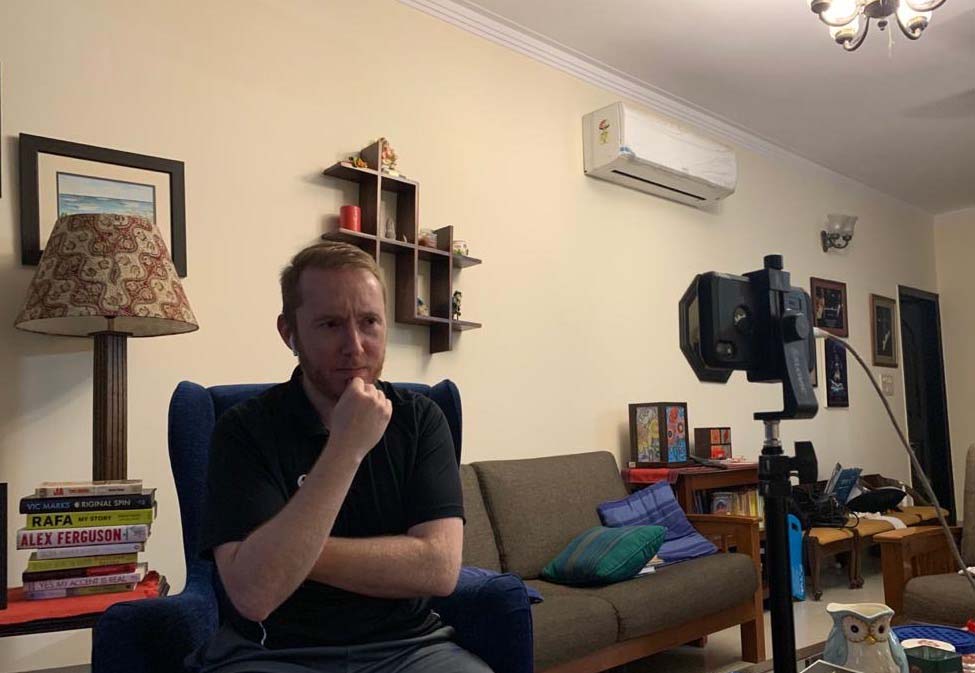
What was it like for you to move to America after Woodstock? How did you discover the sense of belonging and what did that process look like?
Being an Indian you sort of realize, what you are, how you speak, and what you’re familiar with. My mother was very keen that I go to the states for college to not necessarily tap into, but understand that side of our lineage. So it was pretty much a no-brainer after Woodstock that I would go to a college in the United States. And my mom being a teacher, she groomed me for that process. I think I was a sophomore in Woodstock when we were already heading out to the states to apply to colleges and look at campuses, which at that time, I felt was a little early, however, in hindsight, it’s good that I did that because by the time that I got accepted, I knew exactly what I was going into. Whereas the majority of my graduating class in Woodstock didn’t know where they were going in terms of a physical campus or familiarity. So having seen the campus that I eventually got admitted to, the College of Wooster in Ohio, I knew exactly where I was going. Going there meant getting accustomed to a new culture because it was in many many ways new. I had gone to the states sporadically down the years for summer breaks, but to go and live there was a whole new experience, and it was being there that I realized how Indian I actually was! I may look American, and I may try and sound American, but I stood out in a crowd there very much in the same way I did and still do in India. It was during that time there, the six and a half years that I spent in the US, that I decided I didn’t really belong there, and I wanted to go back to India. I’m still very thankful that I had the opportunity to go there and to get a liberal arts education, and to meet far more international students than I had ever met at Woodstock. But being an international kid, I was fully prepared to take it one level further, and had I not gone there I wouldn’t have realized who I actually was and what I really wanted to do. Because getting a political science degree with a focus on international relations was not what I ended up wanting to do and it was while doing that stuff, while going through the grind, that I realized I wanted to do something that I loved. I loved cricket, I loved sport, I loved writing, and that’s when I said, why don’t you become a sports writer. So in 2005, I packed everything up, and I came back. But overall six very fond years of discovery in the United States.
Looking back now on your career as a cricket journalist and player, could you elaborate on a moment that stands out, perhaps one that marked a paradigm shift in your journey to success?
I think the first time you actually realize that you’re getting paid to travel around the world, you understand that this is a privilege that not everyone gets the chance to have. You’re very nervous when you go out and report on a match or cover a game, or a series, or interview someone. Especially when you’re interviewing players who you’ve seen growing up. But I think going for the first time to a match and getting over those nerves, and mustering courage to ask a player a question at a press conference, trying to stop a player when they’re walking with their gear, you know from the ground to the steps. Everyone does it, it’s very common, but it feels very unnatural to you. You know this guy probably has a million and one things in his head and you ask a question, sometimes you get a nod, sometimes you get a stare, sometimes you get an “alright mate not right now”, sometimes you get “alright you have two minutes”. A lot of these things along the way shaped who I am, I can’t really think of one right now, I can think of a lot of matches, a lot of world cup matches I was at… and I say “wow” you were a lucky guy to be able to be there.
(Talking about his favourite cricket rivalry)
India versus Pakistan has been the highest for me on so many different levels. I remember when I was in the United States and I was trying to explain to my non-Indian friends, the Americans would say: when your teams play a world cup match, you guys are friends the whole year, but then that day there’s this clear divide and then it goes away the next day, how is it? I mean look, you may have the Lakers vs the Celtics, you may have the Red Sox vs the Yankees, take all of that and amplify it by a hundred, put like three wars between the two countries, and then you get a sense of what the rivalry is! So, having seen some really fun India versus Pakistan matches, I think the only rivalry which surpasses this might be India versus Australia, especially in the past 10 years, just because they’re both playing a lot of competitive cricket. If you look at India versus Pakistan, nine out of ten times, India has been beating Pakistan over the last 15 years. So that sort of dilutes the rivalry. It’s still a spectacle when the two teams play in a world cup but because it has become rather one-sided. I think India versus Australia to my mind has become the premier rivalry even more than England vs Australia and I’ve been fortunate to watch some really good games between the two.
Being really independent, is something that I think I owe to Woodstock, and my parents being Woodstock graduates themselves, knew that the environment was very good for me.
Being really independent, is something that I think I owe to Woodstock, and my parents being Woodstock graduates themselves, knew that the environment was very good for me.
The American playwright Neil Simon said, if no one ever took risks, Michelangelo would have painted the Sistene Floor. How have you approached risk and opportunity, and have they made you possibly more successful?
Absolutely, I would have to agree with that. If the 24-year-old me working for an insurance company outside of Boston had not one day decided behind his desk, that you know what this is not for me, I would not have been speaking to you right now. Yes, there is an expectation that you naturally grow in that job, when you earn more and become more successful, you put money away. But I would probably not have been the satisfied person I am now. I had to go through that mundane experience in a foreign country to realize that this is not what I wanted to do, and there are a lot of risks that my parents had to take for me to go to America and get a degree.
My mom was very keen that I become an American citizen. There is that whole American dream, which in a sense I was turning my back against. So that was a thing that I wasn’t worried about because I was sure if I was making the right choice, but you know I can understand the pressure that my parents would have felt, like “are you sure?”. But the moment I came back they opened their arms, “if this is what you want to do, do it”. And literally, I could feel within weeks I was happier because I was still 24, I was young enough to not have invested my whole life in yet. I think joining a place like ESPNcricinfo, which was the God of online cricket for us back then, and still is for many of us, I think getting my foot in that door at 24 was good because I was not just out of college, I had worked for about two and a half years, I knew something about earning and saving, but I was still young enough to say, you know what, let’s take some risk, let our hair down, let’s do things! It could have gone really, really differently, but I had a great boss, I had a great bunch of colleagues. And those five years that I spent in my second innings at ESPNcricinfo really shaped me, and I would not swap it for anything. I’m very glad that I took those risks. Even being in this line of work you’re still taking risks. While I was very happy at ESPNcricinfo, but if I didn’t take a jump every now and then, I wouldn’t be as financially successful as I wanted to be. So when you start to hit that wall, it’s very important to go ahead and take that jump, and this is what I also told all my peers who I worked with, the team members I had the fortune of leading. I said: “guys if you feel that something is not working, get out as soon as possible, because you don’t want to get in a place where you’re showing up to work not wanting to do that”. And every time that’s happened to me I look to go ahead and I’ve not been disappointed once, so taking risks is something one must do.
You talk about your mindset as being able to take risks and make a jump every now and then, which has gotten you to where you are now. Where and how do you think you developed this mentality/mindset of being able to take risks that shaped your life and career?
I think mainly a lot from my father as he was a bit of a maverick person. He himself had to buck many trends and perceptions to earn a name for himself in the acting industry. So I would have seen that streak in him, and also I think growing up in a boarding school like Woodstock has helped in many ways. I’ve said this many times when people have asked me “how was your boarding school experience?”. Being really independent, is something that I think I owe to Woodstock, and my parents being Woodstock graduates themselves, knew that the environment was very good for me. Those eight odd years that I spent there, and you know what I’m talking about, when you’re there, yes, you have peers, you have advisors and teachers, but you have to take a lot of decisions on your own. And especially in the middle school or teenage, and high school years, which are the ones that really shape us. Taking these calls, not having to rely on your parents, making calls based on what you feel is right, I think a lot of it comes from there.
When I went from Woodstock to the States, I could see the difference between those of us who had gone to a place like Woodstock and those who had not. And I’m not trying to say that those who didn’t go, weren’t smart or weren’t ambitious, or weren’t independent. But there was a bit of a hesitancy that I noticed, and these are some of my closest friends. For those of us who went to Woodstock, see, we don’t have that. And I’m going to use the word ‘problem’ here, it might sound incorrect, but we didn’t have that problem. We could take these calls on our own. So I owe a lot of it to Woodstock. Even when you’re unsure, just go ahead and do it. Forget about what’s going to happen. You’re going to make a mistake, who cares? Go ahead, and do it. So a lot from my father and a lot from Woodstock.
Through the reception of Afsos, it seems the universe clearly wanted you to become an actor, with your father’s influence in Indian cinema, and the plethora of plays and skits you organized at Woodstock and in Wooster. What was more influential, family or school, and do you plan on pursuing future roles in Bollywood?
I have been told by many that it’s good I began with Afsos, because this is very much life post-Afsos. Like I’ve said before in videos, becoming an actor was never on the agenda. Yes, obviously when you’re young you aspire to become an actor but then life tells you to hang on, this is not what you’re meant for. So yes, I wrote scripts in middle school in Woodstock, I acted in Woodstock, I acted in Wooster, but that was all, you know, just for fun. You’re in school, you’re in college, you don’t really take it seriously. So until Afsos actually came out, I didn’t know where I stood as an actor because the work before that was all very fleeting or it never got released. But after that I’m very thankful that the feedback was so good, because literally almost overnight, I was getting calls saying, hey where have you been all this while, we have work for you. Now that feels great, but you have to take that, not with a pinch of salt, but with a barrel of salt! Because that doesn’t mean you’re going to become the next big thing, right. And someone who’s white, let’s face it, the roles are going to be few and far between. So I got a lot of offers, but they were just things that while it felt good to get, you knew it was going to be an insignificant one-scene in a film that really wasn’t going to do much for your career anyway. So I found myself in a strange place saying, you know what, no thank you. But then I did sign another big Amazon (Prime) show, but before we started shooting the lockdown began and unfortunately, that show got wiped off the table because of all the problems. While that show didn’t shape up, fortunately, I’ve given a lot of auditions, some things did come through. I’ve just shot a Hindi film, so I’m doing a very big Hindi film. I’m doing a couple of other web series, I’m doing a South Indian film, a lot of fun scripts are coming. But the COVID scene is really slowing things down, in that people are not jumping the gun in hiring you. They’re sort of seeing where you are. So a lot of the auditions are like this, they’re on zoom call. But yeah, I’m fairly enjoying this process. Who knows where it’s going to head. I’ve got one leg, like I said, firmly entrenched in the media and I’m not going to give that up. But I like where this ride is going.
Can you share a bit about your success and experience as a YouTuber?
If someone had told me two years ago that you’d be running four YouTube channels, I’d have laughed in their face and said let’s move on. And I’m saying that with full humility, despite being in the media for fifteen odd years, literally for the first thirteen of those I was trying to hide from the camera. As the digital medium shifted more towards video content creation, I was not one of the guys who was putting my hand up saying I’ll do it, I’ll do it. Yes, as a sports editor you have to do certain videos but I was always awkward doing it. Be it IPL preview, IPL review, and interview, it was just a job and so I was forcing myself to do it. I never thought I was made for it. As it happens, I went freelance and I had to start doing things for videos because the demand was increasing. And then lockdown came around, so I thought are we just going to sit here and moan and whine, or are we going to try something? It actually is this simple, you just flip your phone and just start talking and I’m giving it to you strip down, just put all the doubts aside. People ask me all the time, “sir what do you need to do?” and I just say, wash your face, comb your hair, and just start talking. If you feel it’s not working then stop it, remove it, and do it again, I had done this myself and if I have been able to put out nearly 200 videos, it’s because I tried to keep what’s between the ears just free. So in terms of tips and advice, I really don’t talk about something I don’t have any natural interest in. There I might come across as a fool. Stick to things you know well, ask your viewers: “hey guys what do you want me to talk about?”, and I understand I have the vantage point of being someone unique, people like to see the white guy who can talk in Hindi. This is all fine and I get that I’m the disruptive element. That’s obviously allowed me to expand this base I have. But it’s also allowed me to shed a lot of baggage, a lot of insecurities. I never planned to become a YouTuber, even just saying that sounds so weird. My advice would be if you have something, just do it! And like I said, if it looks bad, stop, comb your hair, get that muck out of your eye and do it again. Don’t think that you have to be trained in public speaking or looking good, or some media course; no, no, no, just be yourself, be natural and I hope it works out for you!
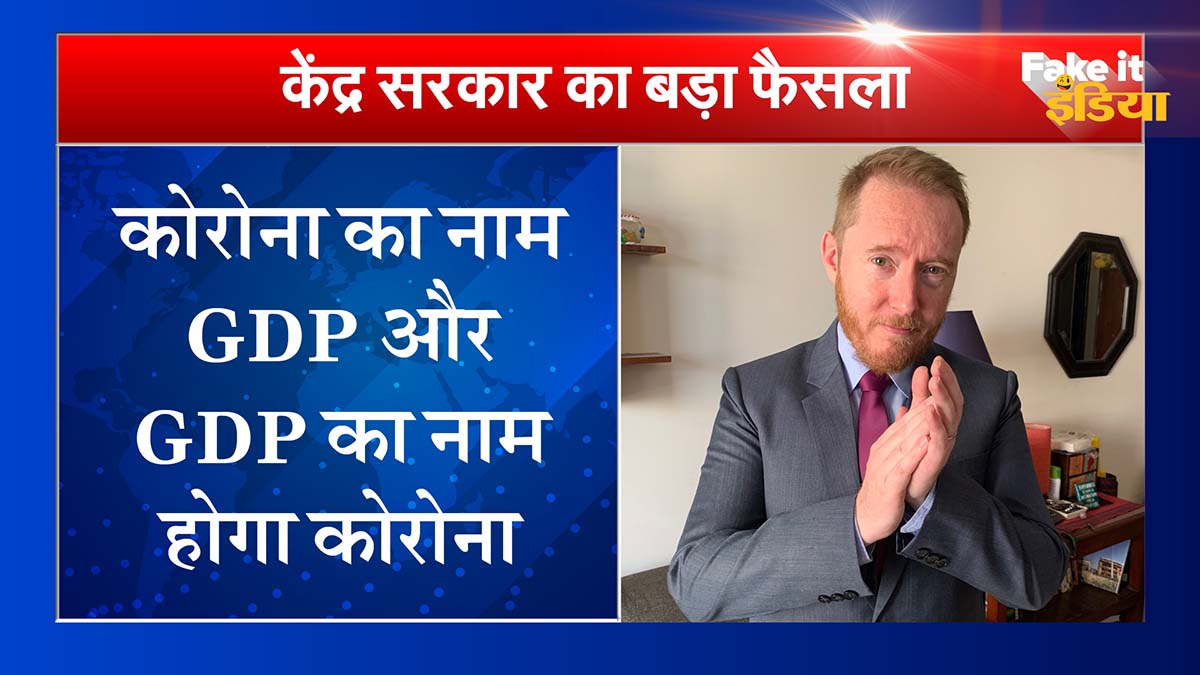
Looking back at your time in Woodstock, what are some memories from High School that stand out to you?
Playing foursquare in the quad, eating raw Wai Wai and Maggi while walking up from the dorms, going to Cozy Corner. I’m pretty sure it’s not a thing now but every other Friday, growing up in elementary school and middle school, we would have these activity nights at the old gym. There was roller skating, shoot the balloon with a BB gun, you know all these things. Basically, a lot of the social activities-oriented stuff was really fun, as living in the dorms could get a bit dull at times. But at least to my young mind back then, it seemed like the school was doing a lot to get us engaged with social activities. I remember activity week used to be fun, except the one where we went hiking. I didn’t like that one. But just a lot of good things, senior skip day, I don’t know if that’s still a thing. We did a lot of fun things, everyone knows that one day you guys are going to do some pranks and there aren’t going to be strict repercussions. So just a lot of juvenile things like that. I remember that Parker Hall talent shows were very fun, guys doing our skits and stuff. I frankly don’t have that many bad memories, probably barring the exam days. It was fun, Hostel, Ridgewood, a lot of good, good fun memories.
Now sitting here as an adult, if you could give that Jamie Alter who was about to enter into his freshman year of university one piece of advice, what would it be and why?
I had a feeling this kind of question was going to come. I would be very brutally honest and say, take your studies a lot more seriously than you feel. I don’t want to say that I have regrets in life, but I know I could have done a lot better academically in college. I just loved the freedom of being outside, away from parents, away from the structure of Woodstock. By structure, I mean being on campus, obviously, there are no rules as such, but you have to know the line between going and having fun and just staying within it. I just did not take my studies as seriously as I should have. I think all the skills learned at Woodstock, allowed me to have a good time in college, to not make bad mistakes. But my grades did sort of nose dive the last year or so, and I did only have myself to blame for that. There were no other wrong choices, there were no regrets. I made lasting friendships, I learned a lot, I was able to build on all those qualities that Woodstock had set inside me. But I would just say: buddy just work harder in school. That’s my honest advice.
Interview by: Araan, Class of 2021






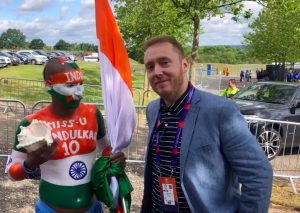
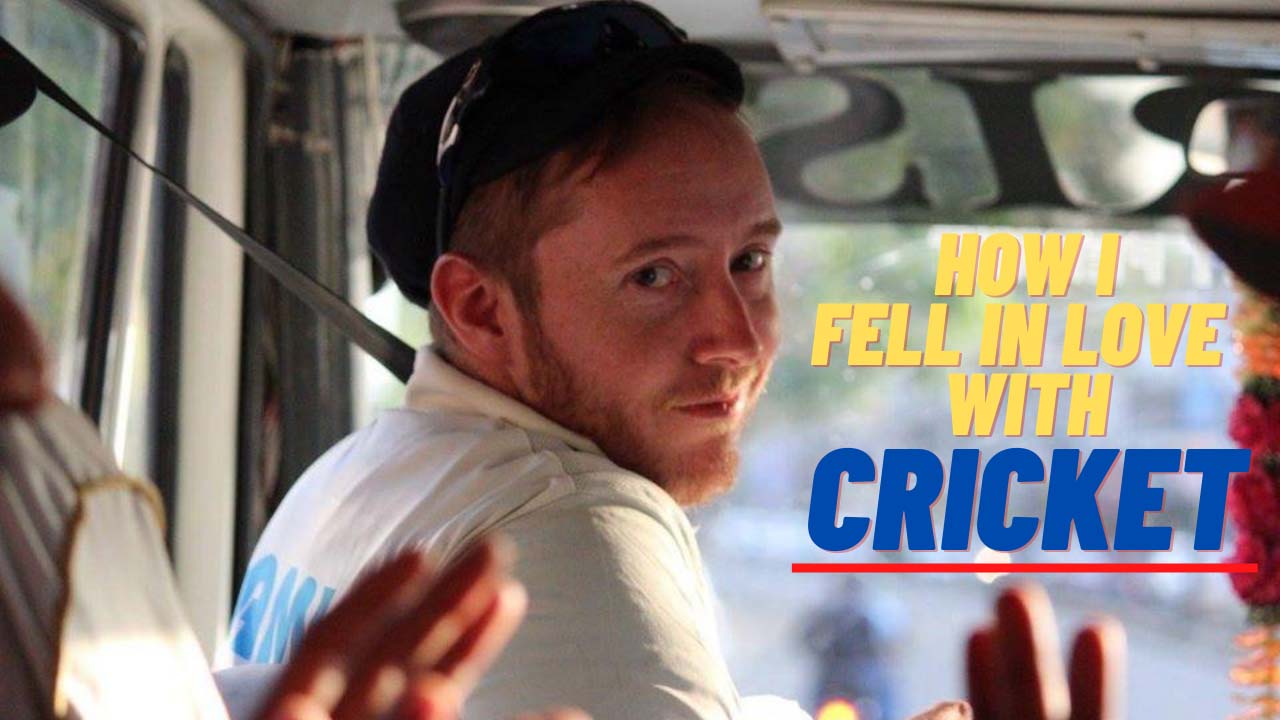
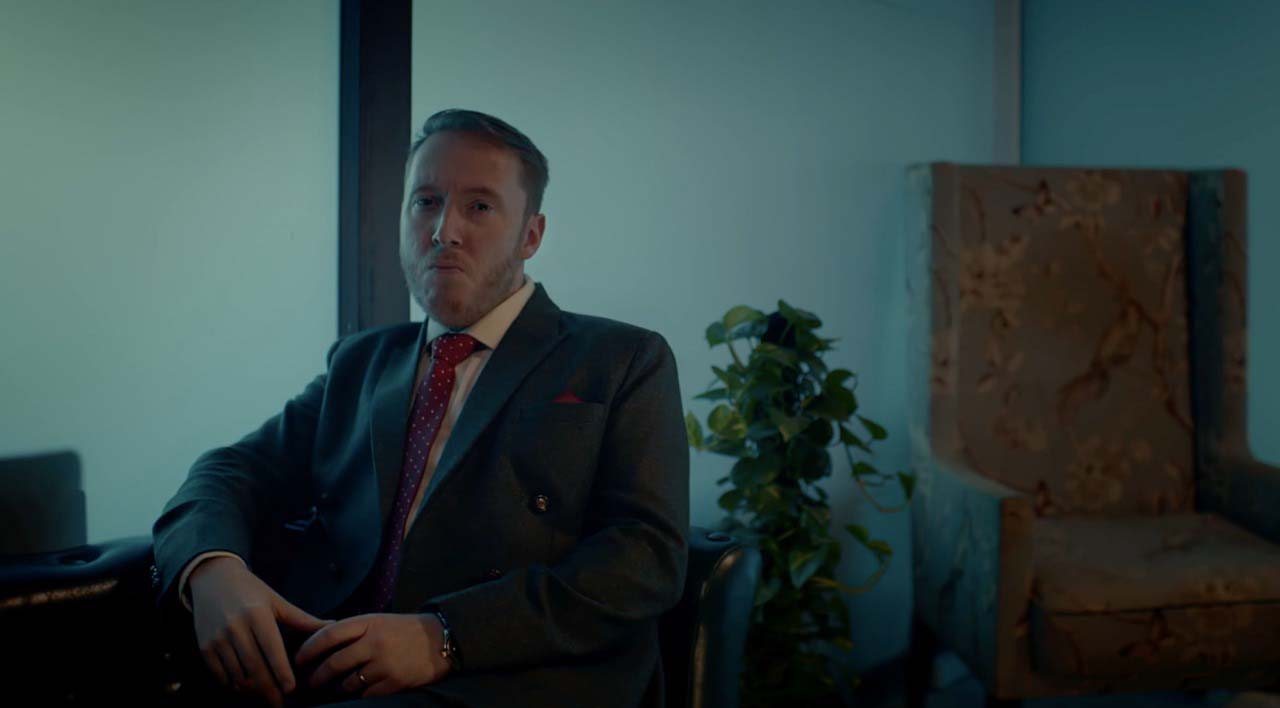
ASHOKKUMAR JANGID
Posted at 03:39h, 29 MayDear Jamie, I am proud of you that even though you had choice to settle in USA, you chose to reside in India as born Indian. At the same time the Indian like me left India 14 years ago and living in USA because of the IT job i am in. I had seen your great late father Mr. Tom Alter Sahab Ji in Door Darshan TV serial Junoon. But I got much impressed by his personality when i watched his last Rajyasabha program Guftugu’s interview. Since then i am his big fan and of course now yours also. I am planning to watch your web series Afsos starting today. I am following you on Twitter also. I had wish to meet Tom Sahab but now only you can fulfill that last wish for me, so hope we can meet some day. I am originally from Rampura, near Khetri, Rajasthan but my grand father and current family is settled in Borsad, Anand, Gujarat near to your birthplace Nadiad. I had watched your mother’s speech video on the occasion of Tom Sahab’s after funeral. I liked that too much. I have seen your son Caden and Your wife Meha on your lots of YouTube videos. I am praying God that all of you stay healthy and happy. As ai said just fulfill my wish to meet you some day. I am currently living at Bettendorf, IOWA state in USA.
gopal chandra barik
Posted at 16:08h, 05 JulyWelcome to India sir How is Uttarakhand.